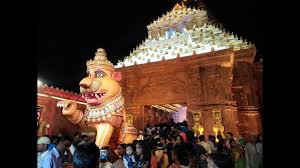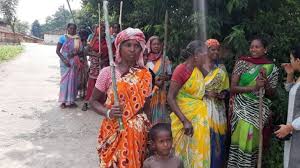Source: egov.eletsonline.com
The Bihar government has transferred four IPS and 18 IAS officers. The officers are of District Magistrate (DM) and Superintendent of Police ranks. One IPS officer who was awaiting posting has been given charge while an IAS officer has been given additional charge.
Arshad Aziz, 2006-Batch, currently Collector and DM, Sheohar, has been appointed as the new Gopalganj DM replacing Animesh Kumar Parashar, 2010-batch, who will now be managing director of state food corporation along with an additional charge of additional secretary of food and consumer protection department.
General administration department (GAD) additional secretary Avaneesh Kumar, 2010-batch is the new Sheohar DM along with an additional charge of settlement officer of Sheohar.
Vaishali SP Manavjeet Singh Dhillon is now posted as SP of Special Task Force (STF). Dhillon got replaced by J Jalaraddy who earlier was posted as Jamui SP.
Gopalganj SP Rashid Jaman will be posted as commandant of home guards in Patna along with an additional charge of assistant state fire officer in Bihar fire services. He will be replacing Manoj Kumar Tiwary who was Gopalganj SP. Also, Inamul Haq Mengnu, who was awaiting posting, is the new Jamui SP.
Health Department Special Secretary Radheshayam Sah, 2005-Batch will now be the Special Secretary in Revenue and Land reforms Department.
General administration department (GAD) Special Secretary Dayanidhan Pandey, 2006-Batch will be working in the same capacity along with the additional charge of director of social security in the Social Welfare Department.
Tourism Department Additional Secretary Uday Kumar, 2007-Batch will work in the same capacity in the General Administration Department (GAD) along with the additional charge of cane commission in sugarcane industries department.
Raj Kumar, 2010-Batch who was the Director of Social Security in the Social Welfare Department, has been designated as director of social welfare in the Social welfare department. Kumar will continue to hold the additional charge of the Director (disability) in the same department.
Planning and Development Department Joint Secretary Sunil Kumar Yadav is now the finance department joint secretary. While GAD additional secretary Himanshu Kumar Rai, 2010-Batch will continue to work in the same capacity in cabinet secretariat department.
Planning and Development Department Joint Secretary Anand Sharma, 2011-Batch has been moved to the Cooperative Department in the same capacity. Meanwhile, Rural Development department additional secretary Kanwal Tanuj, 2010-Batch will take up Additional charge of managing director of Bihar state tourism development corporation.
Jhanjharpur SDO (Madhubani) Anshul Agarwal, 2016-Batch is now deputy development commissioner (DDC) cum chief executive officer (CEO) of district board in Bhojpur and Mahua SDO (Vaishali) Richi Pandey, 2016-Batch is now DDC cum CEO of district board in Begusarai.
Sadar SDO (Gopalganj) Varsha Singh, 2016-Batch is now DDC-cum-CEO of district board at Katihar while Sadar SDO (Sitamarhi) Mukul Kumar Gupta, 2016-Batch is now DDC-cum-CEO of district board Jehanabad. Forbesganj SDO Ravi Prakash is now DDC-cum-CEO of District board of Banka.
Hilsa SDO (Nalanda) Vaibhav Kumar is now DDC-cum-CEO of district board at Nawada. Danapur SDO (Patna) Anshul Kumar, 2016-batch is now DDC-cum-CEO of district board in Aurangabad while Bagha SDO (West Champaran) Vijay Prakash Meena, 2016-Batch is now DDC-cum-CEO of district board at Vaishali.







